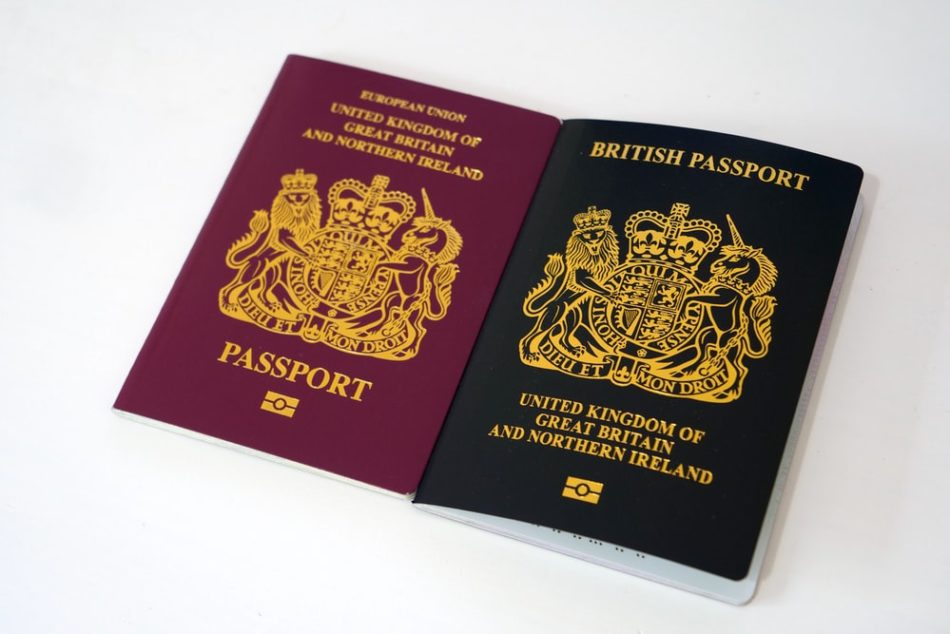Growing up, I would hear my relatives saying aloud how there would come a day when we would get kicked out of ‘their country’. We just didn’t know when it would happen.
That phrase is likely familiar to many people of color, particularly so to Muslims. This idea emerges from the notion that our sense of belonging and holding a British passport is conditional and can be taken away from us at any point.
This phrase appears to be apt within the current conversation that the UK is now having around citizenship. Priti Patel, the current British Home Secretary, has added a clause to the Nationality and Borders Bill whereby the Home Office will be able to deprive a person of citizenship without giving any prior notice.
It’s a worrying trend to see the government enshrining the very fears many people of color have had regarding their position within a society that continues to look at them with suspicion. This was very clearly the case when the Windrush scandal emerged, solidifying these fears even more so.
As a result of that scandal, many from the Caribbean community had their citizenships revoked and experienced violent expulsion from the country that had been their only home, deporting them ‘back’ to their countries of ‘origin’.
To this day, only 5 percent of the victims have been compensated in four years – since the scandal emerged, and twenty-three eligible applicants passed away before receiving any payment.
Another high-profile case has been of Shamima Begum, a Muslim woman who joined Daesh, and had her citizenship revoked.
The former Home Secretary, Sajid Javid, repealed Begum’s citizenship on the basis that she is a threat to national security while also claiming she is a dual citizen, therefore, not rendering her stateless.
The above examples inevitably require us to ask some difficult questions, interrogating who is of the nation and who is outside it.
For instance, whose citizenship consists of a fleeting passport? And why? Such interventions in critiquing the government are essential in providing insights into considering where the goalposts lie.
The legislation doesn’t single out people of color or Muslims but if we look under the bonnet of the legislation and the politicians pushing it, the agenda is clear: the target is marginalized communities.
We continue to witness how citizenship then becomes a matter of negotiation a case of conditionality.
This new clause in the bill affirms the ways in which Muslims and people of color are located within the cultural and political terrain: constantly having to prove their worth. Their obeisance. Their loyalty. Even when they were born and raised in the UK, know it as their only home, they will forever remain aliens.
What is at stake here is that this clause can be used arbitrarily by the Home Secretary, granting Patel and other future politicians, unprecedented power and using it to masquerade the stripping of citizenship under some vague justification covered by the bill.
The long-term impact of this incredibly dangerous piece of legislation is to calcify distrust in this current government as well as erode access to justice.
Additionally, the clause also makes it possible to revoke citizenship retrospectively. While not requiring to notify the individual, the government essentially blocks any opportunity to appeal or challenge the Home Office. This is another way for the government to absolve itself of any responsibility towards its citizens. It is a sub-text for enshrining into law that there is two-tier citizenship.
This two-tier system logic thereby articulates and entrenches thoughts around how crimes committed by people of color and/or Muslims are beyond the pale and thus ousting them from the nation is the solution.
Moreover, by invoking such imageries and tapping into people’s fears of the other, this system further entrenches the idea of ‘us’ and ‘them’.
Even though the ‘us’ has been living with the ‘them’ and vice versa, the looming specter created as a consequence of this legislation will deepen suspicion and distrustful of people of color and/or Muslims.
Enabling such suspicions adds to the argument made in favor of the clause and the bill that those who would have their citizenship revoked will be done on the basis that they have access to citizenship elsewhere.
To use people’s heritage as a sign that they can seek citizenship elsewhere exposes who this legislation is for and who can become a victim to it.
The idea that one can apply for citizenship elsewhere solely based on someone’s heritage is nothing short of playing paternalistic power dynamics, abstracting the possibility of leaving people stateless. As was the case with Begum, the Bangladeshi government refused to receive her despite her qualifying for Bangladeshi citizenship through her parents.
Ultimately, the message this new clause is sending out to people of color and/or Muslims is that their presence is predicated on ‘good behavior’; otherwise, they will be punished, they will be ousted.
They are being reminded that their status in the country is precarious and always contingent.
As A. Sivanandan, the anti-racist scholar and thinker, wrote, “all of us non-whites, at first sight, are terrorists or illegals. We wear our passports on our faces.”
No matter what, boundaries of where you belong will always be drawn out from your face, confirming that borders are mere proxies for containing and managing people.
*The writer Dr. Fatima Rajina is a Legacy in Action Research Fellow at the Stephen Lawrence Research Centre at De Montfort University.
December 1, 2021
The viewpoints expressed by the authors do not necessarily reflect the opinions, viewpoints and editorial policies of Aequitas Review.


